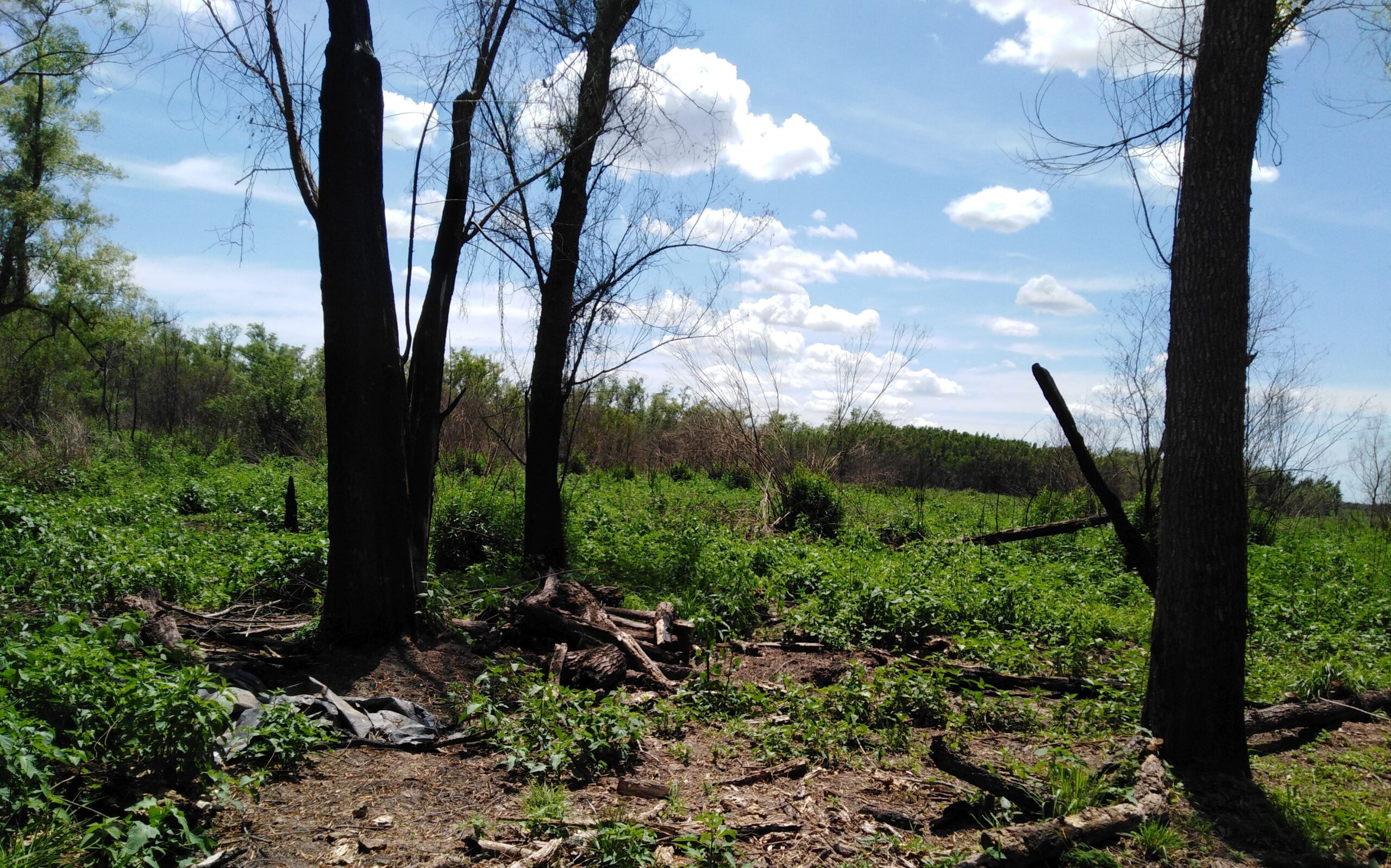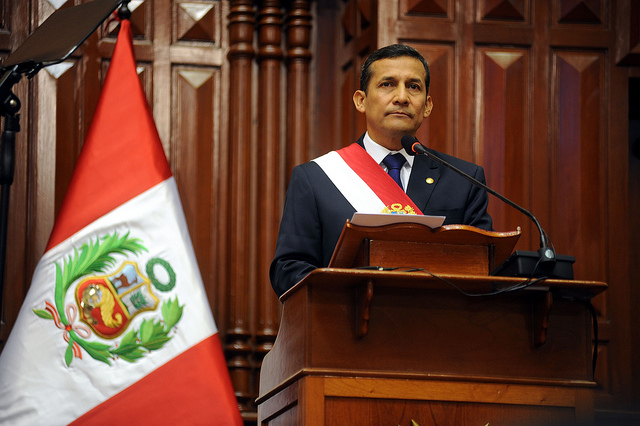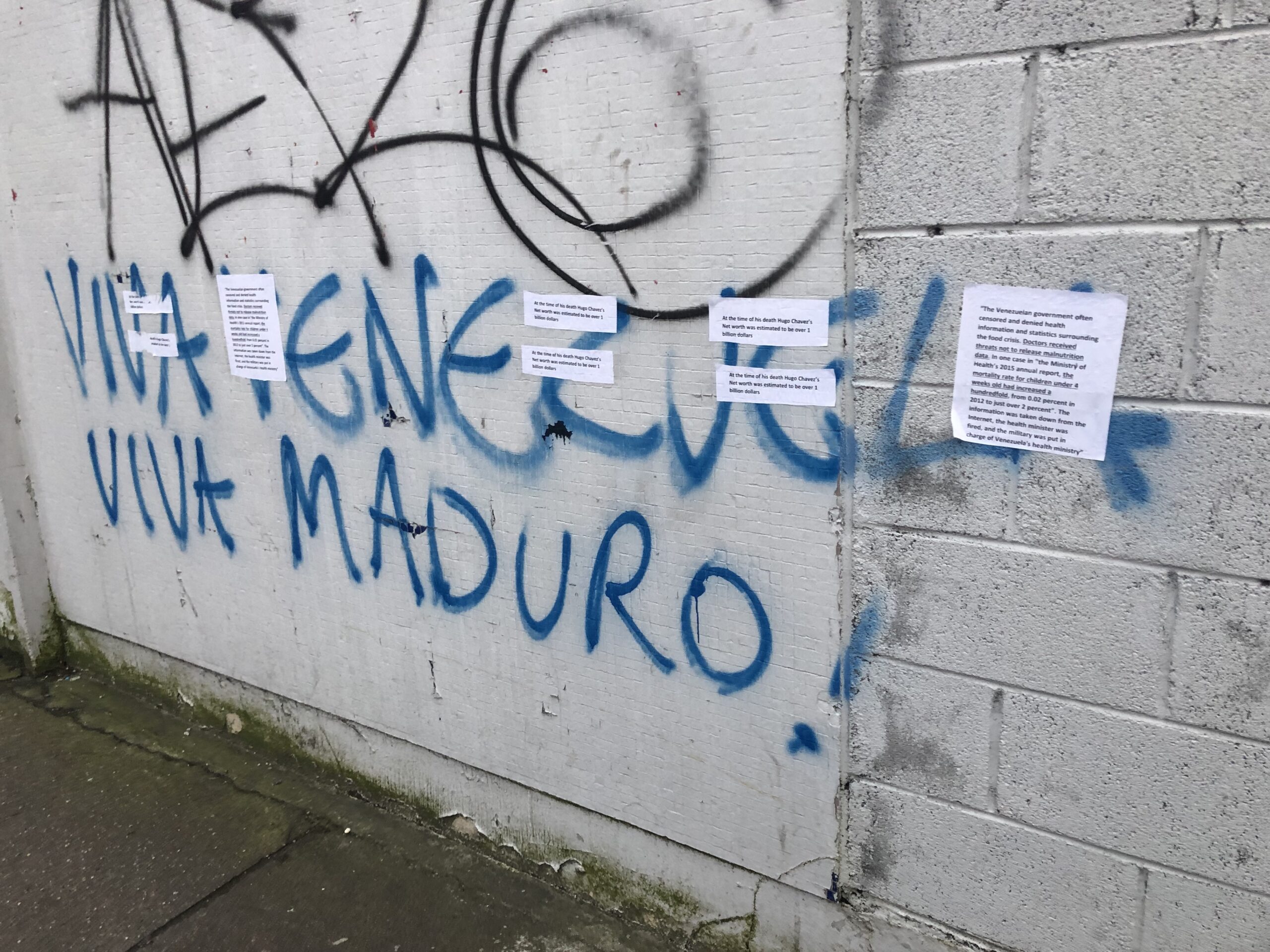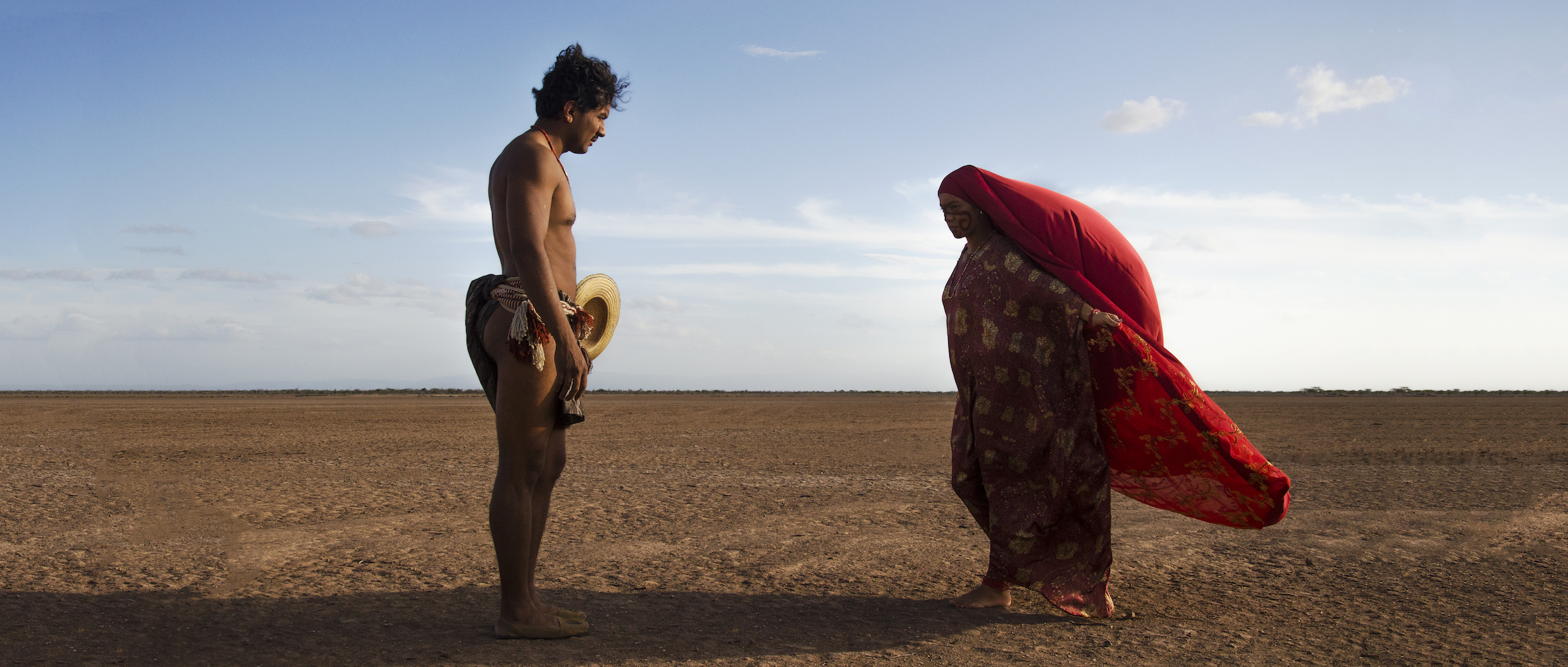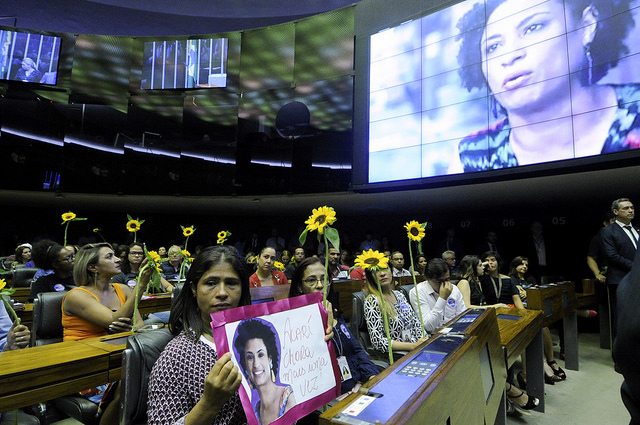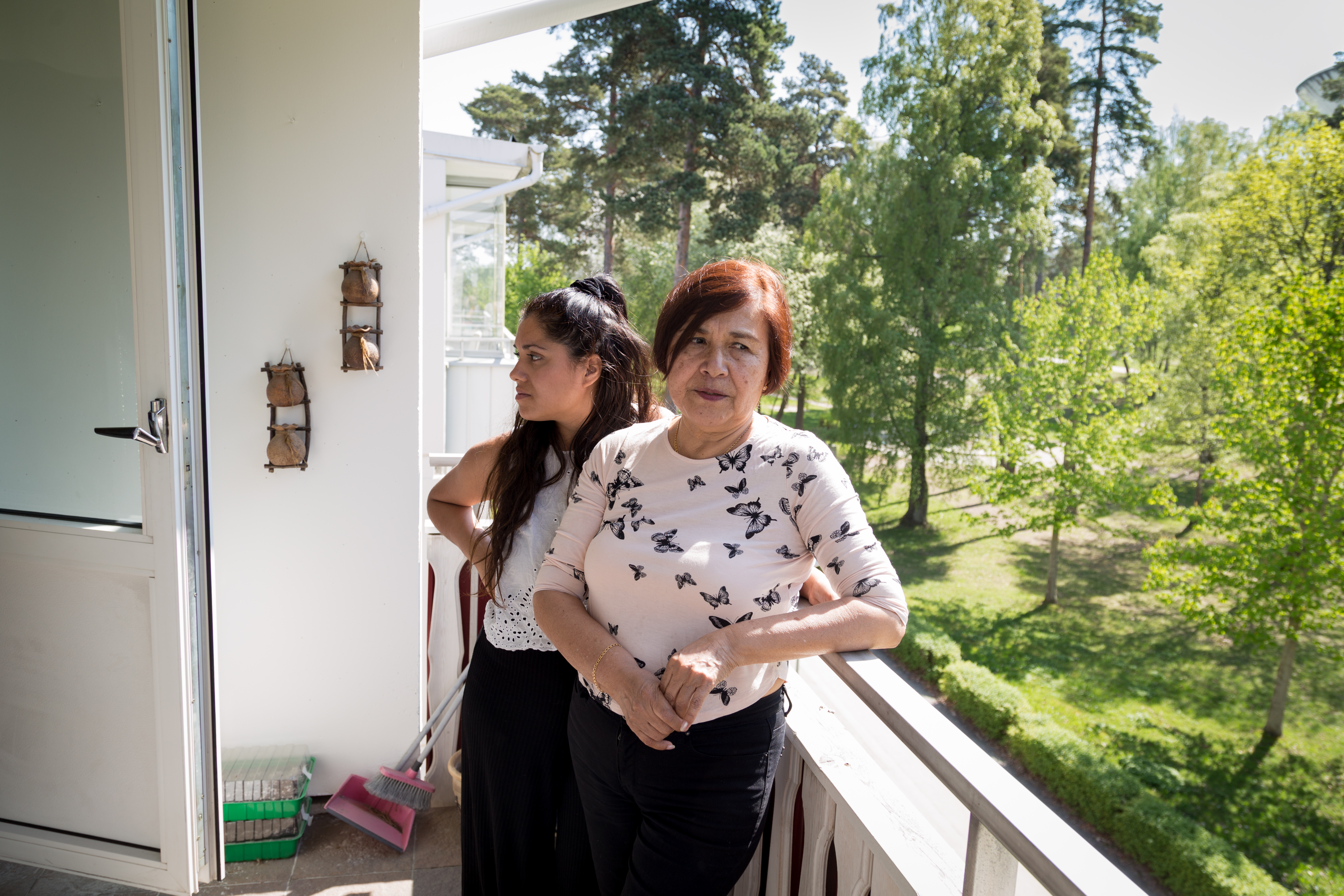
Dispatches, Features, Peru
A 30-Year Quest for Justice in Peru
March 13, 2019 By Alvaro Céspedes
This article was also published in Spanish in Gatopardo. Read it here.
Raquel Martin sits on the couch in her apartment in Märsta, a suburb 40 miles north of Stockholm, looking out her window at a place so unlike where she came from. “Winter is nice, everything is so white, but it’s very hard for me to walk outside, as my bones ache with the cold.” She paused and added,“But the spring here is so beautiful.”
Martin feels at home in Sweden now, but she remains haunted by the searing events that forever changed her life 30 years ago and forced her to leave her home country of Peru to escape the crossfire of the Shining Path, a Maoist guerrilla group, and the state’s badly trained state military. Her life story is a brutal testament to how the war targeted and traumatized thousands of women who were denied justice in Peruvian courts.
On the night of June 15, 1989, a military brigade abducted Martin’s husband, Fernando Mejía, from their house in Oxapampa, Peru, wrongly suspecting him of belonging to the Shining Path. Shortly after he was taken, the same group of men returned to the couple’s home and the masked leader raped Raquel Martin twice. This was not uncommon in Peru at the time. Experts have found that sexual abuse by the military was a “systematic and generalized practice” between 1980 and 2000, the years of armed conflict.
“Sexual violence is also a weapon, not only as the military’s sense of right to conquer but as a form of subjugation,” said Gustavo Gorriti, an award-winning Peruvian journalist. “And add to that a seeming right of conquest that they thought they possessed. How can this type of monster be in the ranks of the Peruvian military?”
In Oxapampa, Raquel Martin had a successful career as a teacher until she fled to escape death threats over the phone for asking why her husband had been killed. In Sweden, she has her own business selling flowers after retiring from several years of teaching.
To this day, no one has been prosecuted for her rape or her husband’s murder. Her case is a reminder that even though Peru ended the armed conflict almost 20 years ago — and has since thrived economically and developed as a democracy — justice remains elusive for countless victims who suffered during the years of war.
“I say to myself, ‘You have to keep on going,’” she said, “but this, for me, has been torture.”
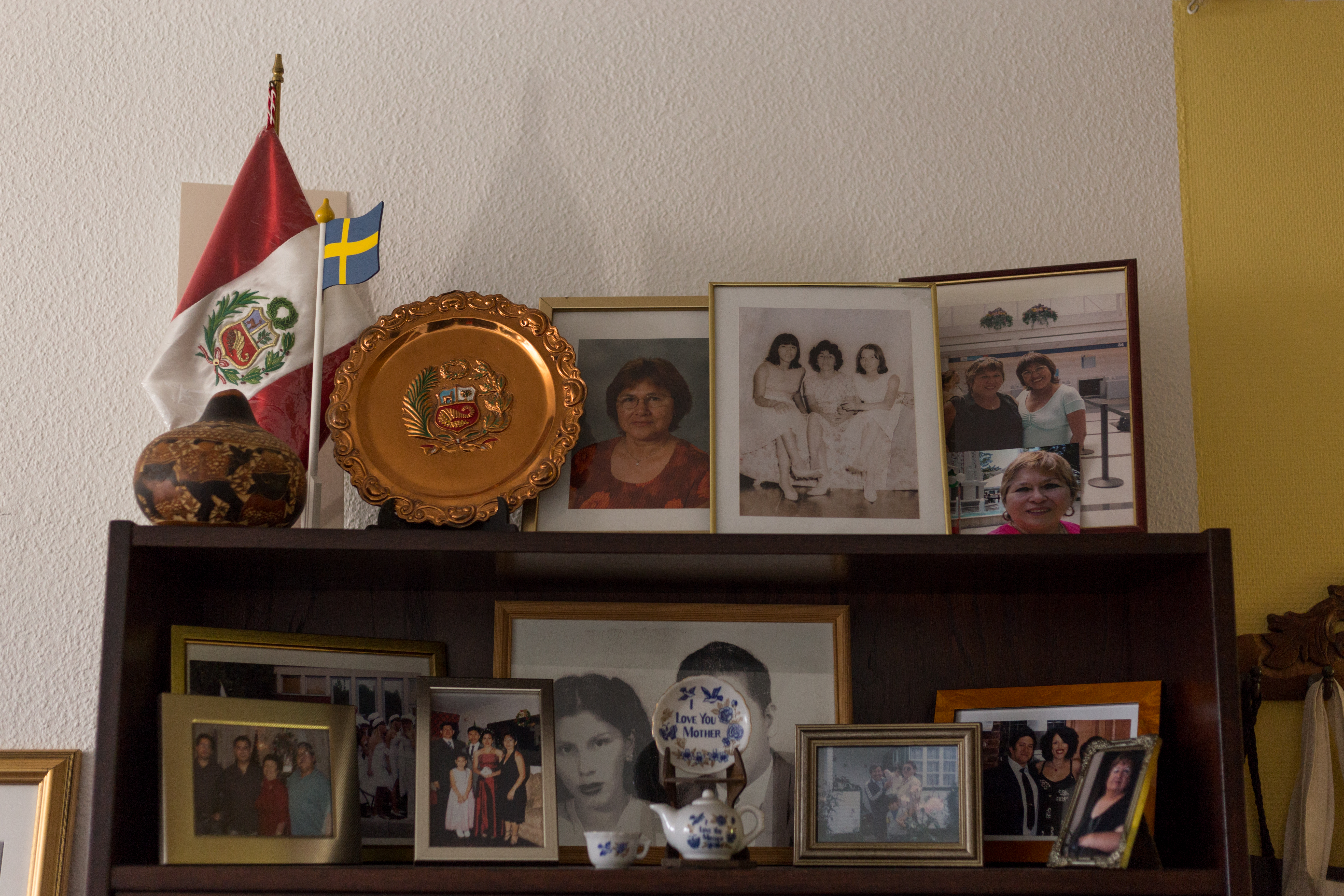
In her apartment in Sweden, Martin keeps framed photographs of memories both in Peru and Sweden. (Photo by Beatriz Sokol)
During the summer of 2018, thousands of Peruvians flooded the streets of the country’s biggest cities to protest corruption in the judicial system. Last July, the digital outlet IDL-Reporteros released audio recordings of a federal judge bargaining to reduce the sentence of a convicted sex offender, whose victim was a minor, in exchange for “power in the future.” This event shed light on a structure of corruption in the judicial system, leading all the way up to the country’s supreme court and the Ministry of Justice.
This latest scandal hit a nerve. The idea of liberating sexual criminals – even pedophiles – brought back memories of the widespread rapes that occurred during the armed conflict. For women like Martin, access to justice for victims of sexual violence remains a “lost cause.”
“There is a lack of comprehension of what sexual violence really is,” said Gloria Cano, director of APRODEH, a human rights defense team, and former legal representative of Martin in Peru.
Of the 534 testimonies of sexual violence officially reported after the armed conflict ended in 2000, only one has been resolved in a court in Peru. In that case, the victim was raped in detention and became pregnant, so the burden of proof was deemed undeniable.
Martin’s case changed the perception of sexual violence in international human rights tribunals, yet, like many others, she is still looking for justice.
Her case was the first in which the Inter-American Commission on Human Rights considered rape a form of torture, which is the most severe form of assault on someone’s physical and psychological integrity. The United Nations appointed Ariel Dulitzky, an expert in the human rights system, the chair of the Mission on Forced Disappearances in Peru. Dulitzky is well-acquainted with Martin’s case, which he considers historic. “Considering rape as torture is not just a juridical reconceptualization,” Dulitzky said. “Rather, it changes the understanding of the impact and the gravity of a rape.”
***
Between 1980 and 2000, Peru was sunk in a state of civil war. The Shining Path, a Maoist-inspired guerrilla group led by Abimael Guzmán, a university professor, launched a “people’s war” in an attempt to overthrow the democratically elected Peruvian government led by Fernando Belaúnde, which the Shining Path considered revisionist and semi-feudal. The government underestimated the threat from the communists and deployed a military that was ill-prepared to contain them.
The death toll from the resulting conflict reached almost 70,000, according to the Truth and Reconciliation Commission (CVR), an independent group created by the Peruvian government to investigate the crimes and human rights abuses committed by state forces and terrorist organizations.
The events of this war, however, hit hardest in regions of Peru far from Oxapampa and Raquel Martin. She wasn’t fully aware of the scope of violence at the time. She had never witnessed acts of political violence or even seen soldiers in her town until they came to kill her husband, she said.
Martin was born in 1946 to a middle-class family in Lima. Her family had “normal concerns of money and work,” she said, but her parents made sure they gave her and her brothers and sisters “the best dresses, shoes and education.”
At 23, she graduated from Universidad Nacional Federico Villarreal, where she studied to be an elementary school teacher. After struggling to get a job at first, she found one in a public school in Oxapampa, 400 kilometers northeast of Lima in a region best known as “the jungle’s eyebrow,” where the Andes start dropping, opening a pathway to the Amazon.
The conditions in the community contrasted sharply from those in Lima. Her students were “very poor, very, very poor,” she said, starting to cry. “I get so sad when I remember.”
Martin, however, was happy being independent, and she quickly made friends in the town.
“I was the girl from Lima who just moved to town,” she recalled. “I was invited to parties, dances. I made many friends, real friends. I left the best years of my youth there.”
By that time, the Shining Path’s “people’s war,” as they referred to their armed struggle, had perpetrated violence on populations in both rural and urban areas of Peru. As the conflict escalated between the military and the Shining Path, the civil population was often caught in the crossfire.
“The army was not prepared,” said Henry Dietz, professor emeritus of Latin American politics at the University of Texas. “They didn’t know who they were fighting against. They did not know the territory, they didn’t speak the Quechua language.”
Dietz, a specialist in Peruvian civil-military relations, said the conflict reminds him of the Vietnam War. “They didn’t know who the enemy was, so everyone was guilty,” he said.
Martin taught for more than 10 years in an elementary school in Quillazú, a small community just outside of Oxapampa, until she enlisted in a long-distance training program that required her to travel to Lima occasionally to attend classes. She finished the course in less than a year and went back to Oxapampa to open the town’s first special education school in town while she completed her degree.
Around the same time, Aladino Melgarejo, a teacher whom Martin knew from the national teachers’ union, gave her a ride to school in Quillazú to Oxapampa on his motorcycle. Mejía was with him, and he and Martin fell in love almost instantly. “He promised me gold and silver,” she said with a smile.
They went out for a few months before they decided to get married, first by a judge in Oxapampa and later by a priest in Lima. They bought a small house in Oxapampa and moved in together.
Mejía was a leftist, Martin said. As a lawyer, he would defend land rights for marginalized peoples, often without pay. Along with his friend Melgarejo, he was a member of Izquierda Unida, a socialist party that worked against the government of President Alan García.
“I was not at all involved in politics, I was never interested in that,” Martin said. “But I loved listening to how he talked about politics.I had to marry someone who I admired, someone who was better than me.”
Their only daughter, Luisa Fernanda, was born in 1985. She now lives in an apartment near her mother in Märsta. Though it has been years since she last saw her father, as a young child, she still remembers him. “I remember how my father, whenever he came back home, was always happy to see me,” Luisa said.
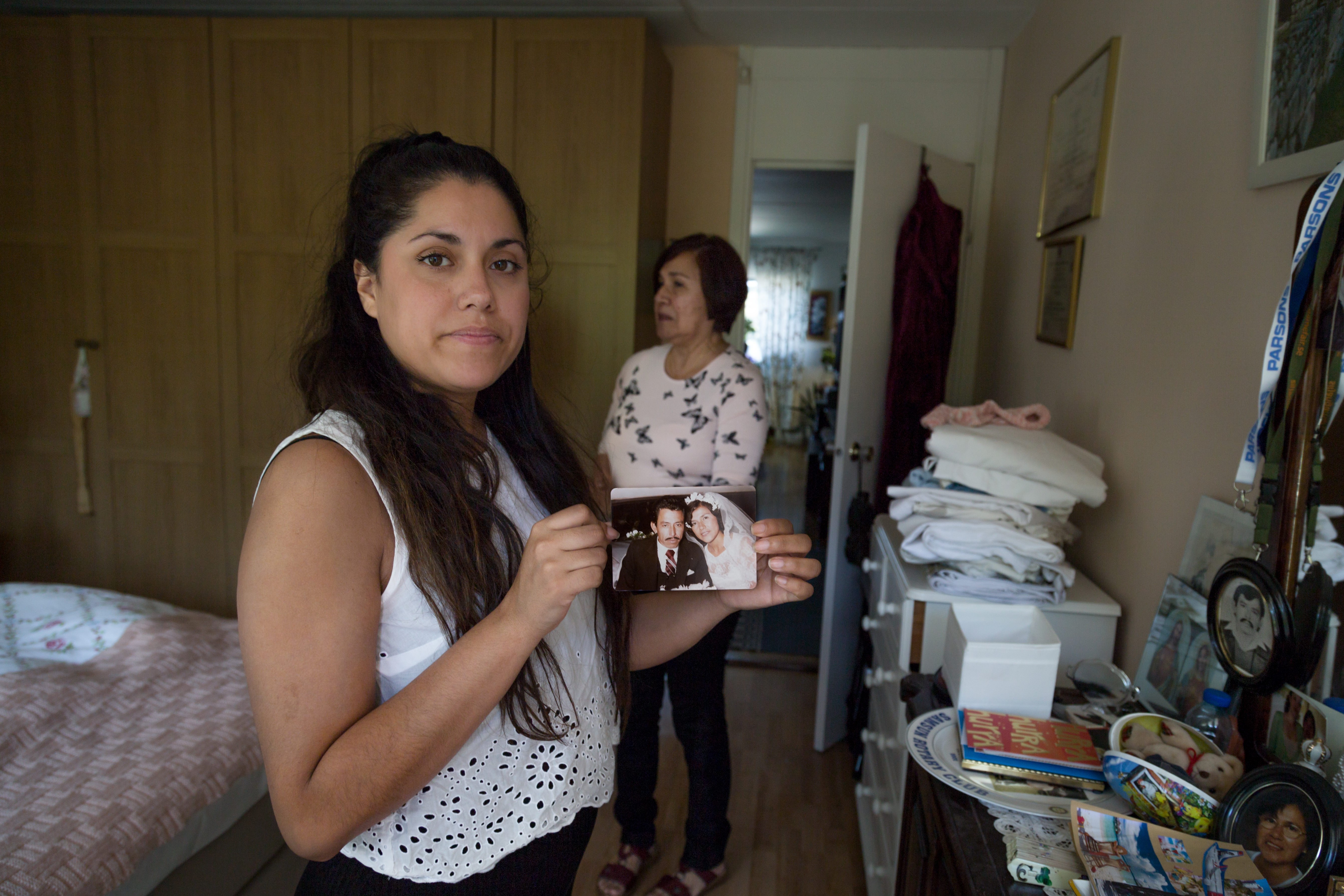
Luisa Fernanda Mejía, Martin and Mejía’s only daughter, holds a picture of her parents on their wedding night. (Photo by Beatriz Sokol)
On the night of her mother’s rape and her father’s murder, Luisa was quietly sleeping in her room. By then, the conflict in Peru had escalated. The Shining Path was increasing its terror campaign against members of the armed forces, the national police and everyone who opposed joining their ranks in the south and central Andes regions. The military played an important role in the rising violence, too.
Cano, the APRODEH director, said that in 1989, “the army manuals were changed.” “There’s a new counter-subversive manual that details the ‘selection of individual targets.’ A new role in intelligence gathering was developing to execute this plan, so violence re-boosted in the form of executions and forced disappearances across the country.”
At the same time, another guerrilla movement started to grow alongside the Shining Path. It was the Tupac Amaru Revolutionary Movement, known in Peru as MRTA. In July 1988, a small cell of the MRTA attacked a police station in Pozuzo, a town near Oxapampa, and killed four policemen. The military presence in the region increased, as attacks by both MRTA and the Shining Path grew by numbers in the communities surrounding Oxapampa.
***
June 15, 1989, was a cloudy day. Martin’s husband had come on his motorcycle to pick her up at the school where she worked. As they drove by the public library, they noticed a group of soldiers stationed in the building. Martin grew scared when she saw them there. She remembers her husband telling her, “Why are you afraid? Have we done something wrong?”
The soldiers came from a mission in Pozuzo, where they had not found anyone guilty of the attack on the police station. That day, they joined the mayor for drinks at a local bar, according to witnesses. The mayor, Martin said, held a personal grudge against her husband and his friend Melgarejo because they belonged to Izquierda Unida. “(The soldiers) needed a trophy. They couldn’t leave empty-handed,” Martin said.
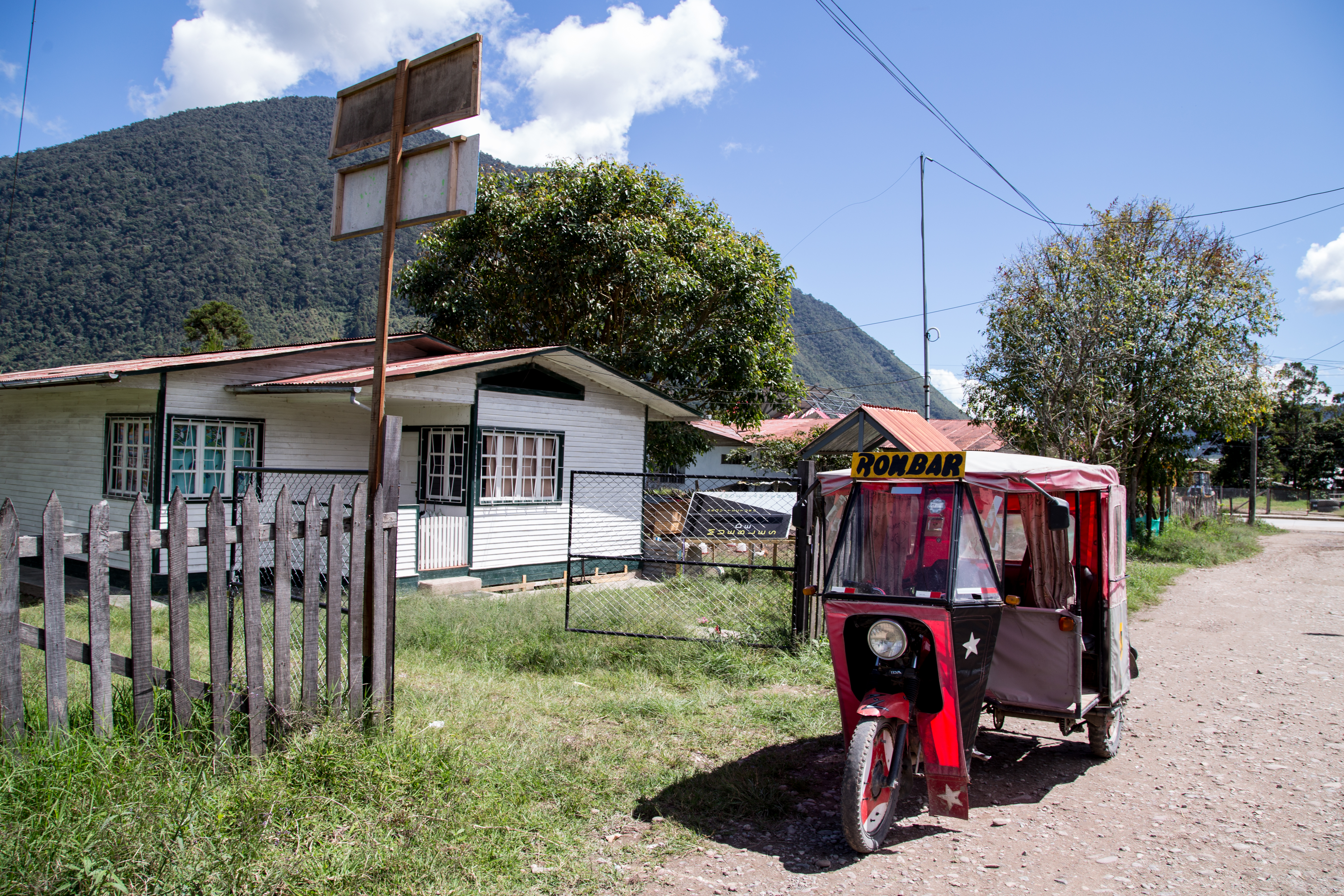
Raquel Martin’s and Fernando Mejía’s home in Oxapampa, Peru. (Photo by Beatriz Sokol)
Around 10 p.m., Martin and her husband were ready to go to bed when they heard loud knocks on the door. Mejía! the masked men angrily yelled from outside the window. Mejía opened the door, and a group of masked soldiers pushed him outside. He was still wearing his pajamas. Martin went out to see what was happening, but the officer yelled at her, telling her to go back inside.
This man is a terrorist, the soldier told Martin.
He’s no terrorist. He’s a well-respected man, ask anybody in town, Martin responded.
“I saw how he was being tied with a rope, and I saw someone else who was tied in the back of the truck, too,” Martin recalled. “That was the last time I saw my husband alive.”
After about 20 minutes, the same group of soldiers came back to Martin’s and Mejía’s house. She opened the door, and the general, smelling of liquor, asked for Mejía’s documents.
“And that’s the point where he raped me,” Martin said.
Two hours later, the soldiers returned for the third time. “In comes the boss, a big, buff man, wearing the green uniform, a belt and a balaclava. I could only see his eyes,” Martin said as she opened her own tear-filled eyes.
The general presented her a list of names written on a piece of paper and asked her if she knew any of them. Then he sprayed her husband’s cologne on himself and raped her again. All this time, Martin was terrified for her daughter, Luisa.
“I was constrained. He was hurting me,” Martin said. “I told myself, ‘Raquel, you can’t do anything, you’re crucified.’ I just laid there, stiff. ‘Let them do whatever they want with me, I’m getting out of this alive.’”
Afterwards, the soldiers left the house for good, leaving Martin traumatized. “I felt like his trophy. I felt so dirty,” Martin said. “I sat on the floor, like a little girl, cornered, helpless.”
Three days later, Martin felt her heart drop when she heard a quiet knock on her door again. It was a local man she knew from the market. He told her two bodies had been found buried by the Santa Clara River.
Martin went with a town attorney to the river, where she found what she had feared the most: the heavily tortured, dismembered bodies of her husband and Melgarejo, his best friend, half buried in the banks of the Santa Clara River, by a small bridge that she frequently crossed.
After learning about the death of her husband, Martin felt increasingly nervous for her life. She felt like she needed to get out of Oxapampa, fast. So her brother picked her up, and they drove to Lima.
Martin and 3-year-old Luisa stayed with her parents. She felt anxious and afraid to leave the house, worried that someone was after her.
“Me and my daughter had been through the worst,” Martin said. “I kept thinking what I would do with my life, but I knew I couldn’t stay in Peru.”

Fernando Mejía’s and Aladino Melgarejo’s bodies were found on the shore of the Santa Clara River in Oxapampa. (Photo by Beatriz Sokol)
Martin’s brother-in-law recommended that she file a human rights complaint. He had heard of APRODEH – a human rights defense team in Peru – that could help her. She decided to visit the organization, and she told them that she was in constant fear of being persecuted. The group told her that leaders from Amnesty International would be visiting Peru in a few days and they could help her get out.
Things moved quickly for Martin after that. She met with representatives of Amnesty International, who told her to go to the Swedish embassy. She could leave in three days. Martin returned to Oxapampa and sold everything she owned. Back in Lima, she and Luisa went to the airport to leave Peru.
“I got to the airport in Stockholm with a bag, my 3-year-old daughter and a visa. There, I began another odyssey,” Martin said.
After she moved to Sweden, the case moved quickly in international courts, with the help of APRODEH. Her rape and her husband’s assassination caused a shockwave that led to the Inter-American Commission on Human Rights, a branch of the Organization of American States. APRODEH pushed Martin’s case to this international organization, as they did with several other cases of grave violations committed during the internal armed conflict, according to Gloria Cano.
Yet even though the Inter-American Commission on Human Rights demanded that the Peruvian government resolve Martin’s case in a national court, little has been done. Dulitzky said political conditions in the country are partly why and there is the additional problem of the burden of proof.
“This is the typical example of why nothing has happened (to resolve Raquel’s case) in almost 30 years,” Dulitzky said. “Everyone has been focusing on the assassination, and not on the rape. This is a typical case of how sexual violence is rendered invisible.”
As of 2019, Peru’s Ministry of Defense has not released the names of the soldiers at the army base when Martin was raped, and there are no legal consequences for the military for refusing to hand over this kind of information to the judicial system.
***
Martin had trouble adapting to a new, solitary and unexpected life in Sweden. The government provided her with an apartment, a monthly stipend, healthcare, education for her daughter, psychological assistance and Swedish language courses. Yet she constantly felt nervous and threatened. Her paranoia only increased after a set of major political shifts in Peru. Economic inflation skyrocketed, and the Shining Path was making inroads into urban areas of Peru.
Dietz said that by 1989, “there were signals that showed that (the Shining Path) was getting closer and closer to Lima. They were trying to suffocate the supply of products entering the city from other places by roads. People didn’t know what to do. With terrorism, Lima was ceasing to function. There were constant power shortages.”
A few months after Martin left for Sweden, Alberto Fujimori, a relatively unknown candidate who was not connected to traditional parties, won the presidential election in 1990. When Fujimori started his term, he enacted major economic reforms aligned with the International Monetary Fund, and he brought foreign investment and created a new currency. He made closer ties with Washington and implemented a much tougher security policy. He also made a new law to protect all members of the military from charges of human rights abuses, granting complete immunity against any type of accusation.
This unlikely winner governed Peru from 1990 to 2000, a period that some Peruvians remember bitterly and other nostalgically. The series of reforms he implemented boosted the economy, and support for the military and the police led to the defeat of the Shining Path in 1992. Abimael Guzmán, the group’s leader, was tracked down and arrested in an apartment in Lima. Fujimori also started going after members of the Shining Path and their families, but many had already fled the country and been granted asylum in European countries, including Sweden.
At the same time, Amnesty International saw in Martin an opportunity to denounce the increasingly concerning human rights situation in Peru. The organization invited her to give public speeches at universities and human rights forums in the United States.
Cano, who represented Martin, said that in Europe there were groups of Peruvians aligned with the Shining Path in Europe and that a list of “ambassadors of terror” that the Foreign Ministry created of people involved in activity for the Shining Path in Europe included Raquel Martin because she had accused the Peruvian army killing her husband and raping her.
“(Fujimori) called it apology of terrorism,” Cano said, “but we rejected that. She was only talking about human rights in Peru.” Martin was tried in absentia in Peru and charged with terrorism. Martin said she “felt so humiliated. My name was in the media, they said I was a terrorist. I felt like my family was ashamed that I was being charged with this. I knew this was very concerning.”
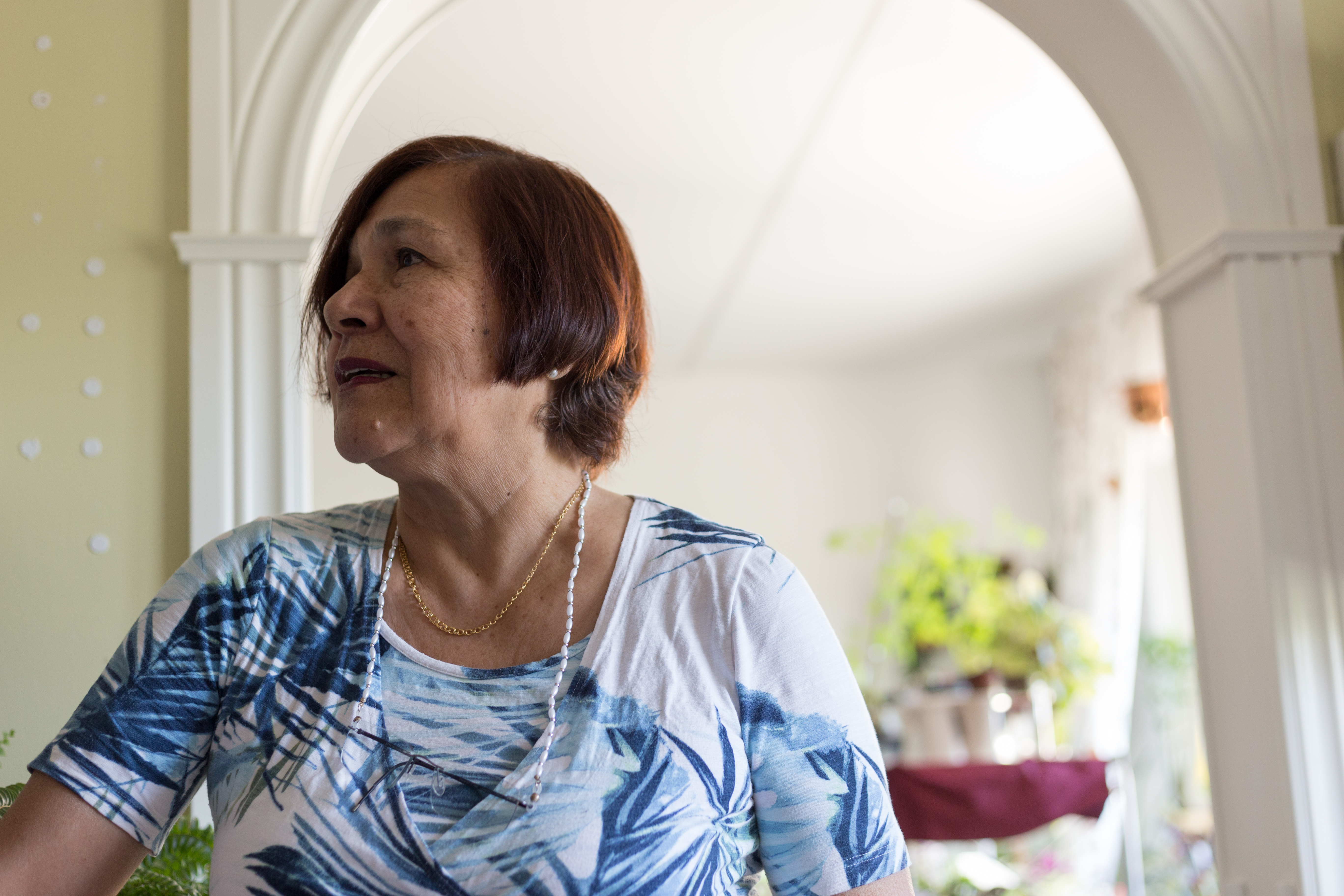
Raquel Martin, 72, talks in her apartment in Märsta, a suburb of Stockholm, Sweden. (Photo by Beatriz Sokol)
By the end of the decade, Fujimori had been accused of corruption and had fled to Japan. The end of his presidency ushered in a new era for human rights in Peru. The country’s new president, Valentín Paniagua, created a Truth and Reconciliation Commission to investigate the violent events of the armed conflict that had started 20 years before. This symbolic gesture marked the official ending of the bloodiest conflict Peru has seen in recent years.
The terrorism charges against Martin were dropped after Cano, Martin’s lawyer, presented evidence against these claims in a federal court. The government issued reparations to Martin in the form of a small lot of land near Lima. However, the cases for rape and the killing of her husband remain open.
***
Today, Martin is retired from her job teaching at a special education school near her home in Märsta. She now owns a small business selling flowers and plants that she grows in her apartment. Luisa studied social work in Stockholm and has a job at the socialtjänsten, one of the state’s social service agencies, working with immigrant children who live in communities with higher rates of crime and drug abuse. “This work has got me in touch with what my mom went through,” Luisa said, “but I try not to get too attached with that, because I know it hurts me so much.”
The emotional pain for Martin has been a constant in her life in exile, too. She still goes to therapy and takes medication after she was diagnosed with PTSD more than 15 years ago. She says that part of this trauma is related to the fact that the responsible parties have never been tried in a court in Peru.
“I only want the man who was responsible for this to face justice,” Martin said. “I want my name to be cleaned and my husband’s name to be redeemed.”
Gustavo Gorriti, an investigative journalist in Peru who revealed a major corruption scheme in the judiciary system in June 2018, said the lack of judicial resolution in Peru is a “constant struggle, if not permanent, in every level of government. There is a really high level of corruption inside the judiciary system. There are groups that are ingrained in the system, sometimes they only seek for mutual favors,” he said, “but other times they are linked to major political parties. They seek to influence, to change judges and place the ones they agree with.”
Martin’s case still sits among thousands of other open cases in a court in Huancayo, a city near the town of Oxapampa, and the current political situation in Peru offers little help for her case. Last year was a hectic year in Peruvian politics, with two presidents in office, three electoral processes and 45 ministerial changes, most of which happened in the justice system.
“I want a public apology from the president,” Martin said. “I want that my case meets justice. That’s what I want. …I want to go back to Peru holding my head high.”
About Alvaro Céspedes
Alvaro Céspedes is a Mexican journalist currently pursuing a double master's degree in journalism and Latin American Studies at The University of Texas at Austin. He has conducted research in the Peruvian Andes, where he's doing a thesis on the narratives of cultural memory of the internal armed conflict. His journalistic works focus on stories related to the intersection between immigration, social justice, and culture. In the United States, he has done freelance work for Texas Observer and Texas Standard. In Mexico, he has worked with Vice and Letras Libres. He believes in the power of words as a means for change.
